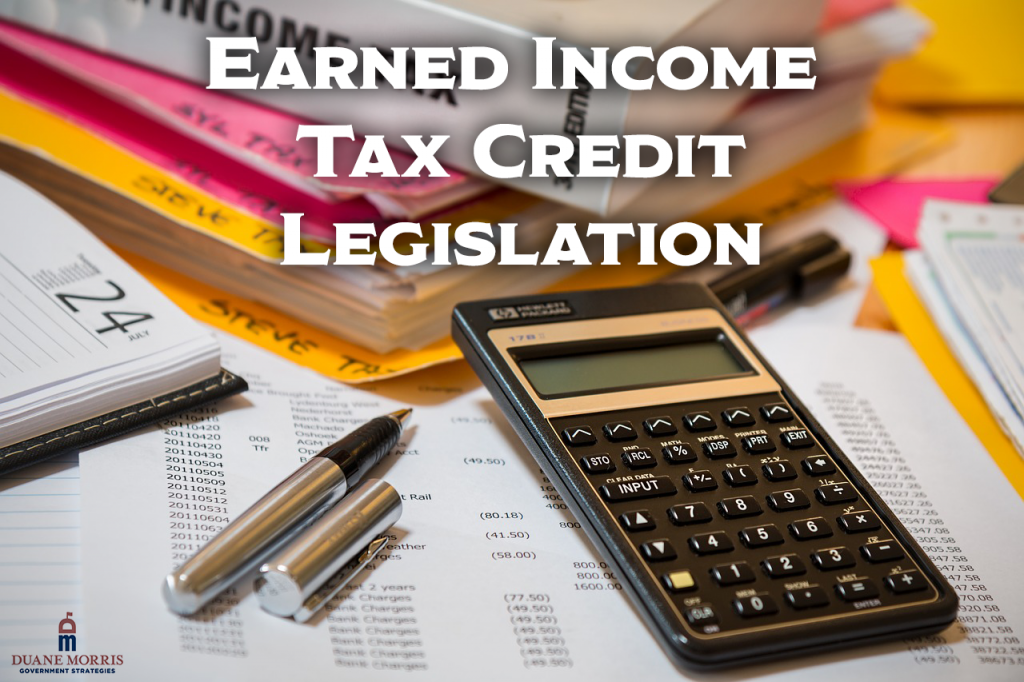
The Earned Income Tax Credit (EITC) is a refundable tax credit for workers with moderate- to low-income levels. Eligibility for the tax credit is based on several factors, including family size, income, and filing status. As of July 2021, the federal government, 30 states, the District of Columbia, Puerto Rico, Guam, and several localities have EITCs. The federal EITC was first introduced in 1975 and Rhode Island was the first state to implement an EITC in 1986. During the 2019 tax year, 25 million eligible workers received a total of almost $63 billion in federal EITC, with an average of $2,476 per filer. Below is an overview of several states implementing EITCs or adjusting their existing EITC via EITC legislation in 2021.
Colorado EITC Percentage Increase
In June, Colorado Governor Jared Polis signed HB 1311 into law, making several changes to the Colorado tax system. Included in this legislation were significant changes to individual tax deductions, corporate tax calculations, and an expansion of the state’s EITC.
More specifically, HB 1311 increases the Colorado EITC for Colorado residents to 20% of the federal credit claimed for tax years beginning on or after January 1, 2022, but before January 1, 2023. After this one-year period, for years from January 1, 2023, and before January 1, 2026, the Colorado EITC will increase to 25% of the federal tax credit claimed. For tax years after January 1, 2026, the state tax credit reverts to 20% of the federal credit claimed.
Additionally, the legislation makes the Colorado child tax credit available to workers after January 1, 2022, based on a percentage of the federal tax credit that varies with the individual’s adjusted gross income.
Maryland Eligibility Expansion
In March 2021, Maryland Governor Larry Hogan signed SB 218 into law. The bill alters the calculation that allows workers to claim the Maryland EITC, expanding eligibility for the tax credit. According to the Maryland Comptroller, “SB218 created a refundable credit available to certain individual and joint married filers with one or more dependent, disabled children under the age of seventeen. Such filers with a federal adjusted gross income of $6,000 or less may claim a credit for each qualifying child in the amount of $500.” There is no limit on the number of children for whom filers can claim the credit, provided they meet the age and dependent requirements.
Furthermore, the bill allows certain filers to claim a refund in the amount of any excess credit for that year. The Senate bill is an emergency measure only to remain in place through June 30, 2023. After that date, the bill will expire, and eligibility for the Maryland EITC will revert to the formula in place before the legislation went into effect.
In February, Governor Hogan also signed the Recovery for the Economy, Livelihoods, Industries, Entrepreneurs, and Families (RELIEF) Act. One of the most expansive state coronavirus relief bills, SB 496, contained a provision that increased the state’s refundable EITC from 28% to 45% for the tax year beginning after December 31, 2019. This provision will last until January 1, 2023, and then revert.
New Jersey Age Requirements Adjusted
At the end of June 2021, New Jersey Governor Phil Murphy signed Assembly Bill 5345 into law after the State Assembly passed the bill 72-0, and the State Senate passed it 38-1. The bill expands eligibility under the New Jersey earned income tax credit program to allow workers 18 years or older to qualify for the modified benefits. More specifically, this would make eligible for New Jersey’s state tax credit taxpayers who are not eligible for the federal earned income tax credit.
According to the bill, “The resident individual shall meet all qualifications, except for the minimum or maximum age, for the federal earned income tax credit in order to be eligible for the New Jersey earned income tax credit.” Calculation of the tax credit for these individuals shall be predicated on the federal maximum amount of tax credit for taxpayers with no qualifying child in taxable years after January 1, 2020.
New Mexico Working Families Tax Credit Legislation
House Bill 291, introduced in February 2021, would allow taxpayers to claim the Working Families Tax Credit if they meet New Mexico’s EITC requirements except for age and identification number. More specifically, the legislation would expand the Working Families Tax Credit to those who lack Social Security numbers and are 18 years of age or older. The bill increases the tax credit for the 2021 taxable year to 20% and 25% for the 2023 taxable year.
Furthermore, aside from expanding New Mexico’s EITC, the legislation also increases the Low-Income Comprehensive Tax Rebate (LICTR) to be worth up to $730. Eligibility for the low-income tax rebate will also increase from $22,000 to $36,000 annual income. Additionally, the rebate will adjust with inflation so that it retains value over time.
The House bill passed the New Mexico House 42-27 and the State Senate 40-0. Governor Michelle Lujan Grisham signed the bill into law on April 6, 2021.
Virginia EITC Legislation
House Bill 1800, Virginia’s biennial budget for fiscal years 2021-2022, included significant assistance to community human services organizations under Item 356. Under these appropriations, the Commonwealth provides significant state money to increase awareness of the state’s EITC. According to the bill, $185,725 will be provided on the first and second year from the Temporary Assistance for Needy Families (TANF) block grant for a contract with the Virginia Community Action Partnership to provide outreach, education, and tax preparation services for those who may be eligible for the federal EITC.
The contract requires that the Virginia Community Action Partnership report its efforts to expand knowledge and use of the EITC. This includes “the number of individuals identified who could benefit from the credit, the number of individuals counseled on the availability of federal EITC, and the number of individuals assisted with tax preparation to claim the federal EITC.” The report shall be provided to the Governor and the Virginia House Appropriations Committee Chair each December 1.
Latest News
photo credit: iStock.com/designer491 According to the National Center for Education Statistics, “Property taxes contribute 30% or more of total public-school funding in 29 states.” However, using property tax income to fund public schools can be [...]
Film strip in perspective. 3D isometric film strip. Cinema Background. Template cinema festival or presentation with place for your text. Movie time and entertainment concept. Vector illustration The Georgia film tax credit was designed to [...]
Photo credit: iStock.com/TU IS New Hampshire Executive Order Background In February 2022, New Hampshire Governor Chris Sununu (R) issued Executive Order 2022-1, establishing the Governor’s Commission on Cryptocurrencies and Digital Assets. The order noted that [...]
Photo credit: iStock.com/Andrii Dodonov As we discussed previously, on August 24, 2022, President Joe Biden announced a sweeping package of federal student loan relief that forgives as much as $20,000 in loans, a move Biden said would [...]






Stay In Touch